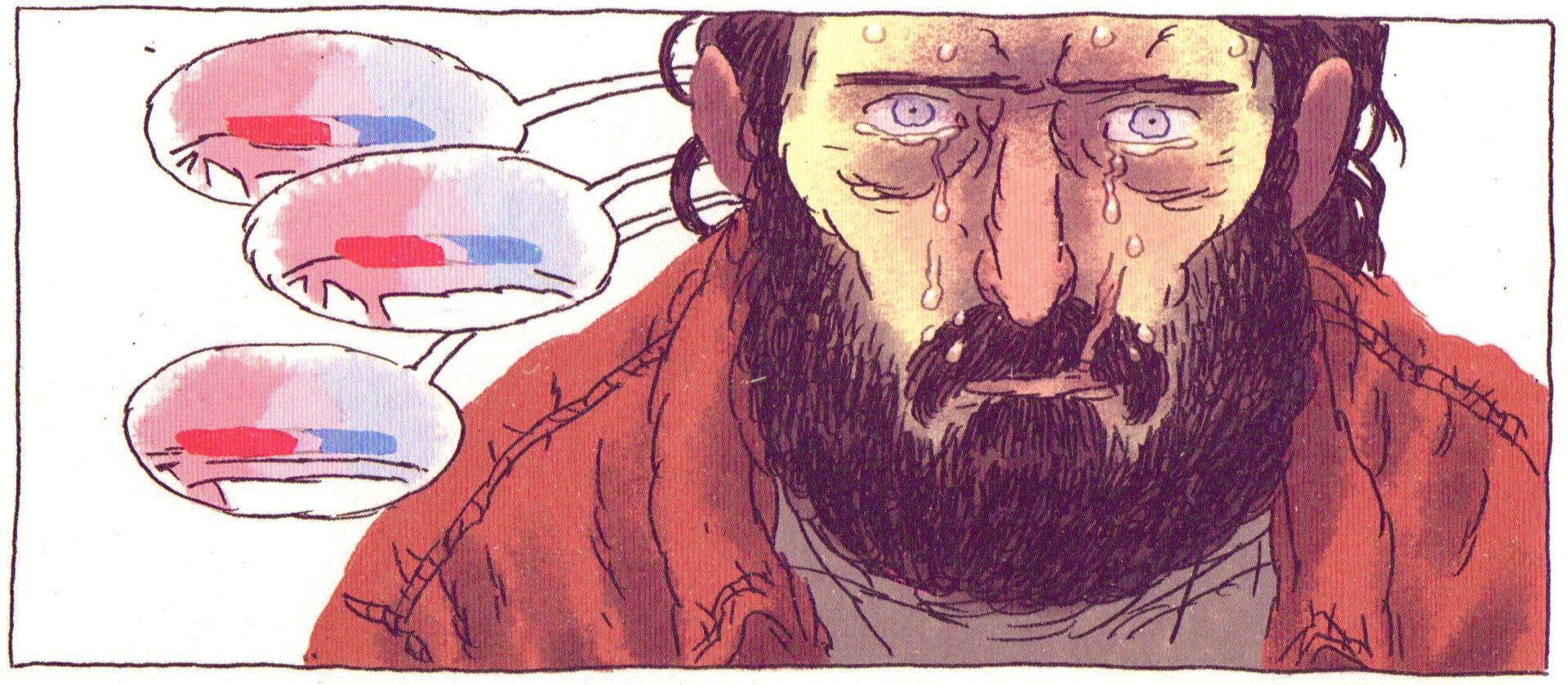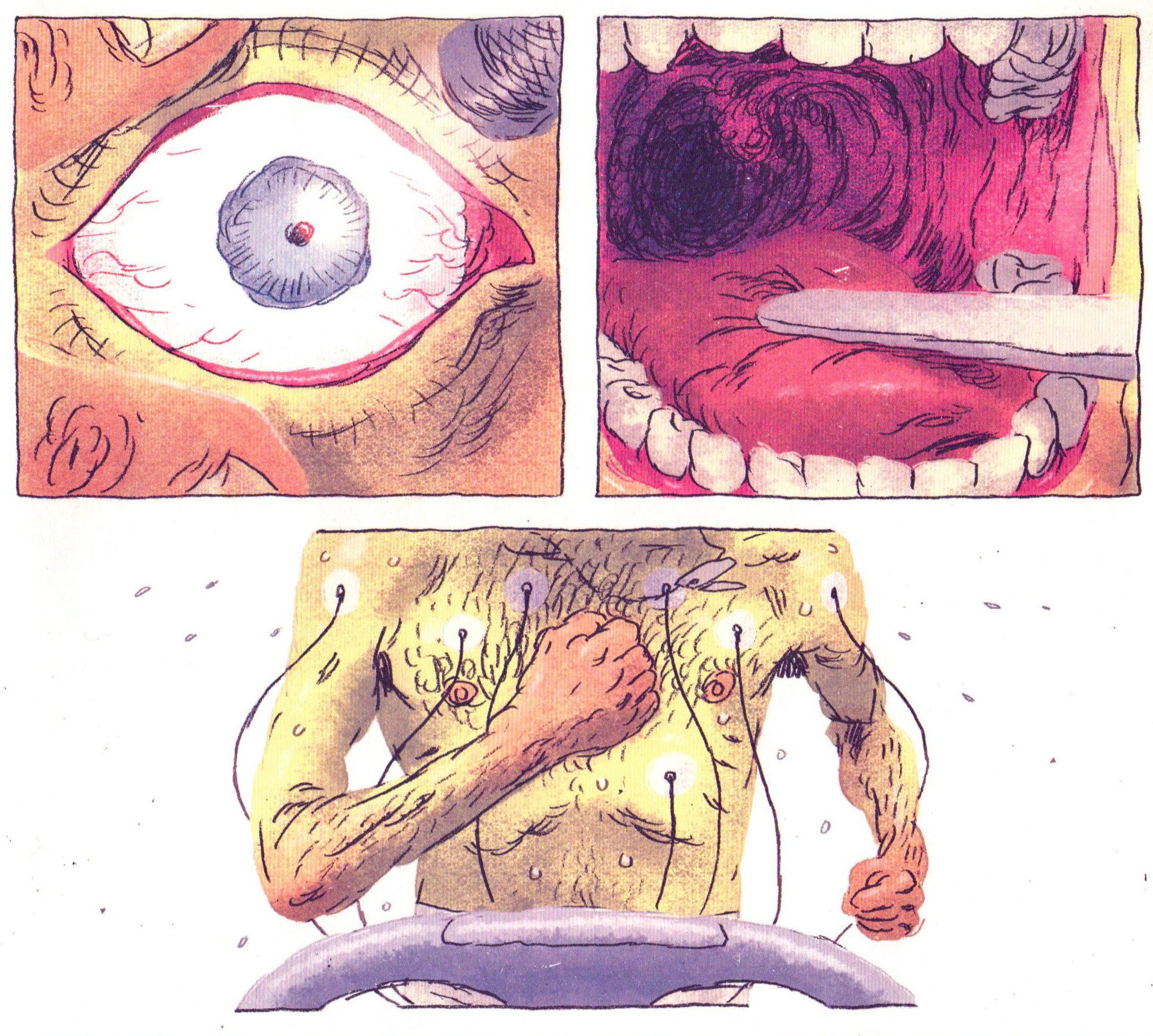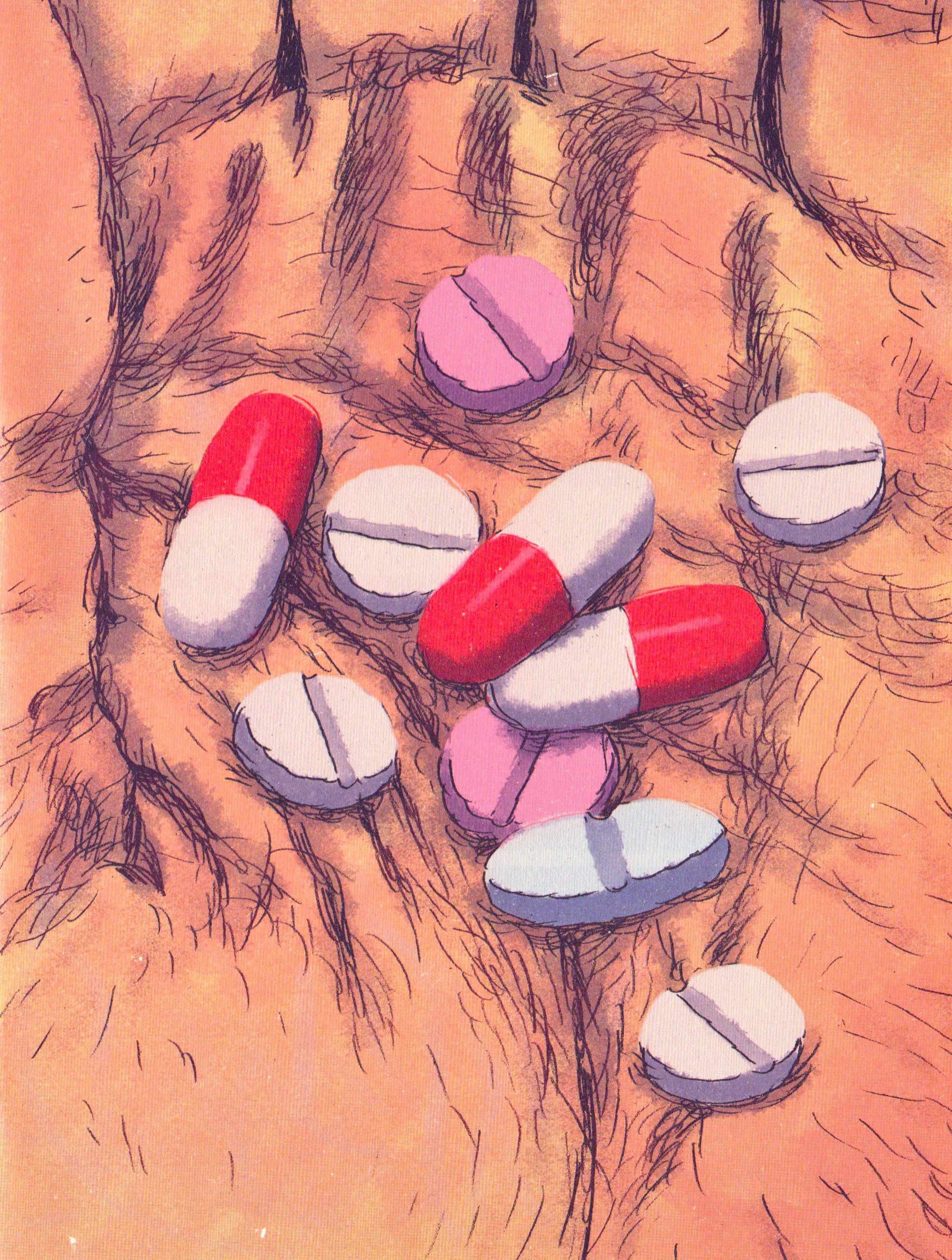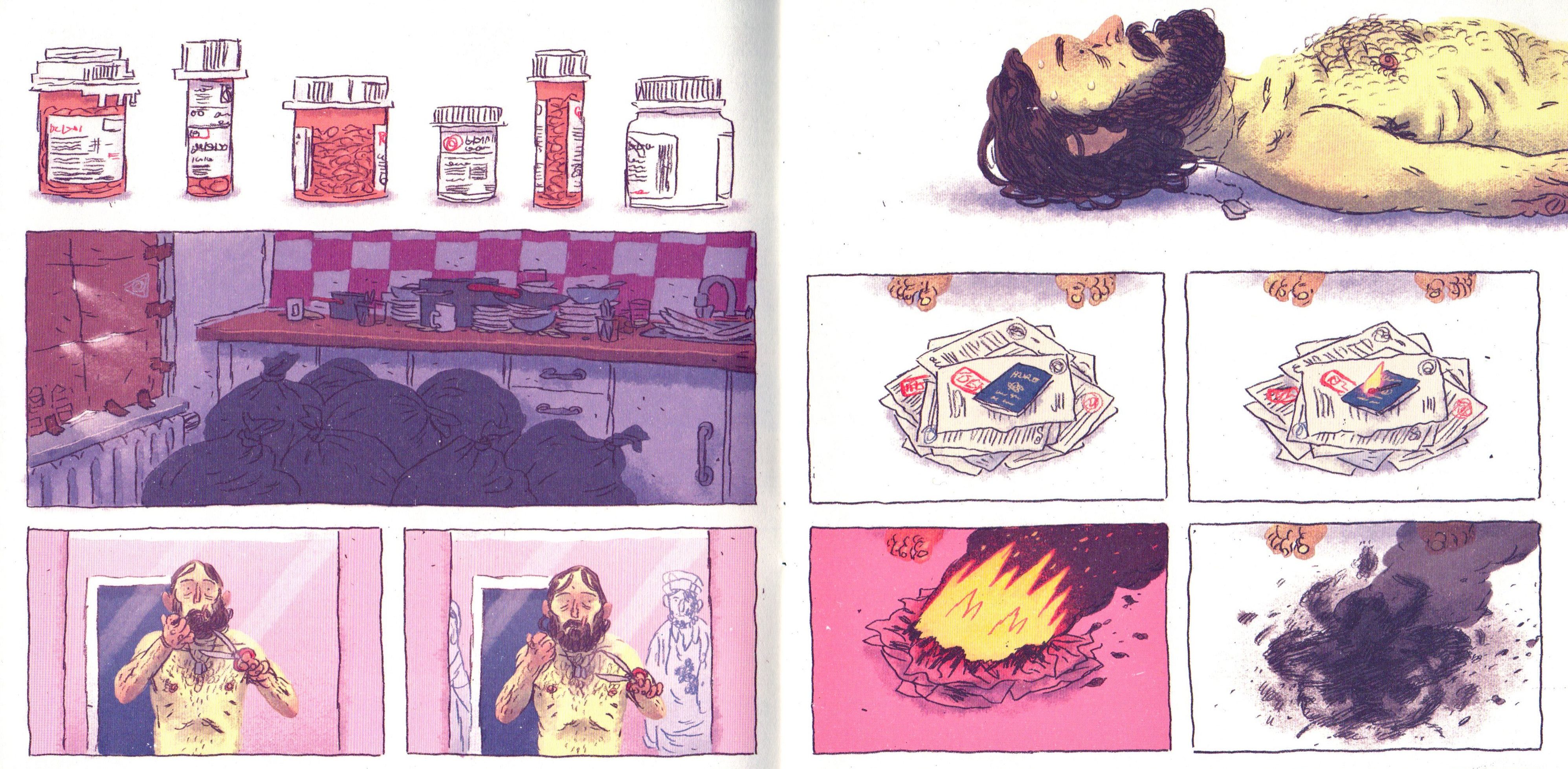The greatest comics of all time don’t appear on bestseller charts or canon lists or big-box bookstore shelves. They are the property of the back issue bins and thrift store crates and convention hawkers of America, living like the medium itself in the unseen crags and pockets of publishing history...
Obsolete, by Mikkel Sommer. Cover dated 2011. Published by Nobrow Ltd.
How acquired: Straight from the box before it went on sale at the comic shop, just like all the good ones from the past half-decade.
Best single drawing:
Pretty much every drawing in this thing is perfect, and there are a few that could have taken the top spot but for their inclusion of story material that's best experienced firsthand -- so I'm going with this one, which contains both a head-smackingly intuitive use of sound effects and a great bit of portraiture. Determination in the face of sorrow. Check out how every last detail is described with a completely uniform line weight. Good stuff.
The history lesson: It's interesting to look back at the past 40 years of comics history and notice how regularly the American comics scene has been introduced to a new foreign influence. DC Comics' early-'70s scouting trips to Spain and the Philippines melt into the French-led culture shock of Heavy Metal's arrival on these shores, which itself opened up the field for the British Invasion of the '80s, which led into an era of greater prominence for Southern and Eastern European cartoonists in America before the manga boom changed the way things work forever ... whew. Now that the translated manga scene is in decline and anything Japanese is no longer guaranteed to sell like crazy, the time seems ripe for a new group of foreigners to rock the medium's birthplace -- and as it happens, we've got a great one all set to go. Scandinavian comics have been boiling on the extreme fringes of the artier side of the medium, especially, for years now (the most notable import being Norway's wildly popular not-so-funny-animal cartoonist Jason), but they seem more and more primed for wider notice with every passing month, as the translated books pile up and the work we see over here gets stronger and stronger.
Mikkel Sommer's Obsolete, itself the product of the hugely exciting transatlantic incursion of U.K. publisher Nobrow, is perhaps the most masterful piece of English-language work by a Scandinavian artist yet (a Dane, in this case). It's also Sommer's lone offering to the American market to date, aside from a blink-and-you'll-miss-it painted zine that popped up at this year's MoCCA Festival. Seeing such indelible work come out of nowhere is indicative of both the richness of the relatively untapped vein that is Scandinavian comics, and the growing sense that this country may not take up as much of the center of the sequential-art universe as it has in past times. But who cares, if that means we get more great comics?
Why it's the greatest comic of all time: Sommer's book might be equaled for effective use of the 24-page pamphlet format, but I'm hard pressed indeed to think of anything that clearly surpasses it. Obsolete is a staunchly formalist comic in disguise, one that pushes the art form through the wringer in order to communicate what feels like a whole novel's worth of story in a few pages. The disguise of it is that Sommer's such a good artist with such a compelling story that you just don't notice the formal chances being taken, the panels and layouts and compositions that you've never seen the like of before, until you go back and read it all again.
Which will only take you about five minutes, give or take. Obsolete is an incredibly simple crime comic at its core: two traumatized veterans of the US military's engagement in the Middle East rob a bank, and everything goes wrong. The way it goes wrong, though, is communicated via one of the most affecting moments the comics form has managed in recent years, an open-mouthed blood-clencher of a shock that completely flattens you emotionally, rendering the final seven pages of the book a disturbingly frosty epilogue. That said, the final twist is only the crescendo of the ones that pile up throughout the story: with almost every page, some new surprise rolls out to upset the equilibrium Sommer has established previously. What starts out as a lyrical musing on man's capacity for destruction becomes a pointed political allegory once we learn who the book's main character was killing for. The introduction of dialogue two-thirds of the way through what to that point is a completely silent comic comes as surprisingly as a shout in the dark. And the booze-and-pills fueled robbery sequence isn't so much a gradual unraveling as a folly stamped from the beginning with the mark of doom. Sommer starts his book at rock bottom and then drills into the firmament itself, plumbing the depths of despair and inhumanity with colors so crisp and lines so appealing that we're left wanting to take the journey again and again.
It's Obsolete's visual might just as much as its story that makes it such a beguiling piece of work. Sommer's drawing occupies a space somewhere between Frank Quitely and Gipi, with bits of Joe Kubert thrown in for good measure: Bold, ropy lines cluster and tangle together in some spaces and leave others completely bare, giving everything the same knotty, slightly aged texture, managing to seem at once dynamic and meticulous, while the lack of holding lines around figures and objects throw a sense of fluid motion into each panel. His colors recall a simpler, more painterly Chris Ware, cold and brittle tones that nonetheless convey a tremendous amount of impact when they're called upon to do so. Swinging back and forth between reds and blues, with the deep muted purple of the linework as the midpoint, they manage a tremendous amount of emotion without once becoming overbearing. This is as much a beautiful comic as it is an ugly one, and Sommer's individual drawings have as much return value to them as his story.
What's really special about the visual aspect of Obsolete, though, is how effectively its pages are constructed. Never crowded or overly busy -- no page features more than seven panels -- each one nonetheless puts across essential information, filling in action both present and past with rapid jump-cutting and idiosyncratic juxtaposition of images. A row of pill bottles hovers over a trash-strewn apartment interior whose single occupant lies shirtless across the spread, while a pile of letters and a passport bursts into flame below him: this isn't the typical comics mode of tracked physical motion through space, but it conveys both the plot particulars and the disconnected, shell-shocked tone of Sommer's story perfectly.
That tone is perhaps the most haunting thing about Obsolete, a short and simple comic that simply refuses to leave you once its covers are closed. It's the conviction here that's most important, not the content -- the sense that the creator giving this stuff to us now is the one who's going to leave us on the floor with our throats cut, not anyone else. Sommer's layouts work like expertly crafted musical hooks, embedding familiar twists and archetypal characters in the reader's head not because of what they are but how they're presented. The set design, of-the-moment Scandinavian crime fiction crossed with US newspaper headlines, is wonderfully considered for both maximum impact and staying power. And the final moral of the story, that no one is beyond redemption but the redeemed are only new potential victims for an uncaring world, is the kind of bold, uncompromising statement that's all too rare in this country's action comics. Obsolete is that rarest of things: a debut masterpiece, a piece of work so fine that it's hard to imagine how its creator could improve on it from here. Hopefully the English-speaking world will find out soon.
Cover price: £6.50, €8, or $11, according to the Nobrow website. A steal no matter what currency you're packing.




